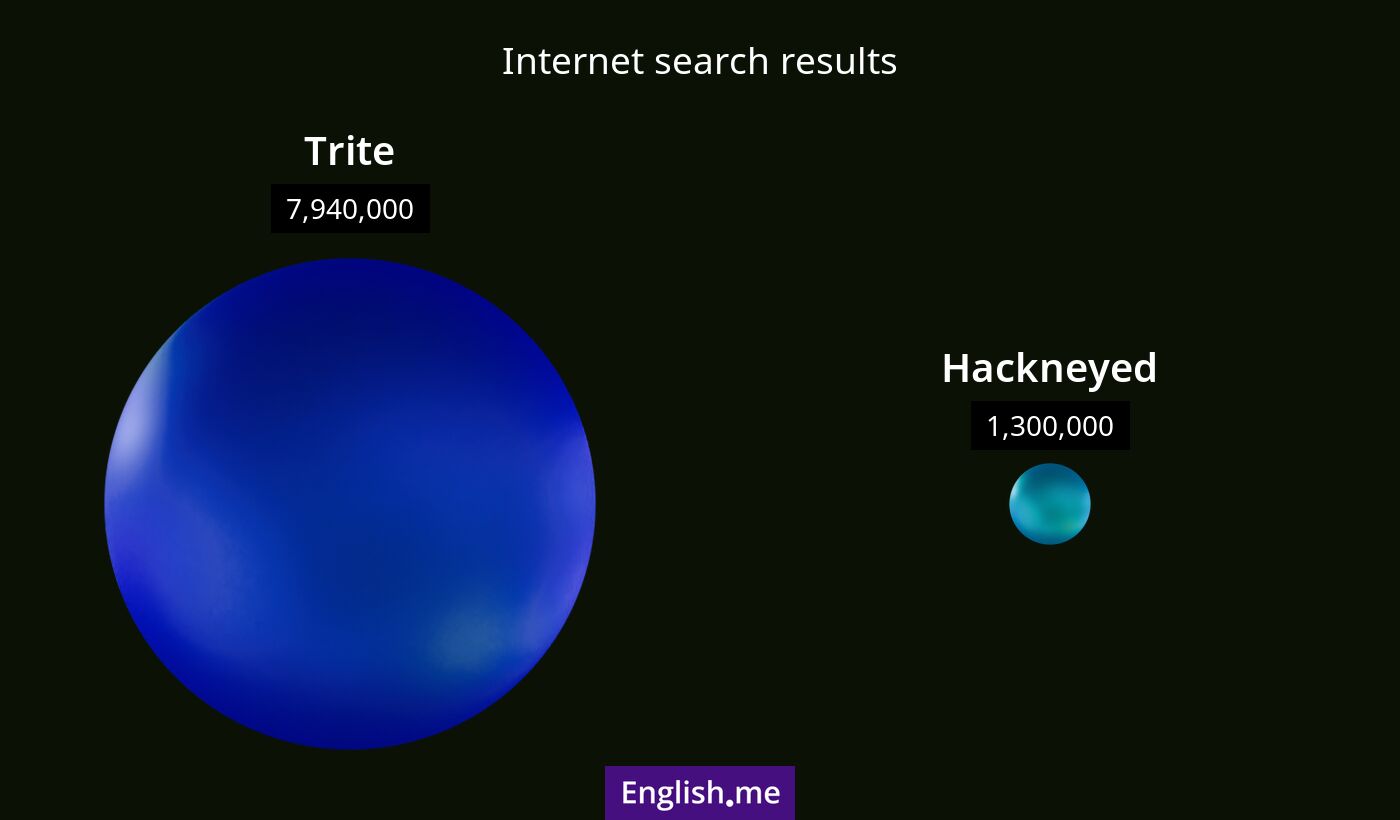"Trite" vs. "hackneyed": the battle of the bland and boring!
Reviewed and edited by  Lloyd Cooper 16/10/2024, 15:15
Lloyd Cooper 16/10/2024, 15:15
English.me team member

 What is similar?
What is similar?
Both "trite" and "hackneyed" refer to ideas, expressions, or elements that are overused and lacking in originality or freshness. They often imply that something is clichéd and no longer interesting due to excessive repetition.
 What is different?
What is different?
While both words indicate overuse, "trite" usually emphasizes the lack of freshness or novelty, suggesting something is worn out and common. "Hackneyed" focuses more on the idea being clichéd or predictable due to constant repetition. "Trite" can apply to many forms of expressions and situations, while "hackneyed" is often used specifically in the context of phrases or ideas, especially in literature or speech.
 Which one is more common?
Which one is more common?

 Examples of usage
Examples of usage
Trite- Her writing was full of trite expressions that did nothing to engage the reader.
- The movie's plot was extremely trite, offering nothing new to the genre.
- His apology felt trite and insincere, as if he had said the same words many times before.
- The film's storyline was hackneyed, relying on old tropes that everyone had seen before.
- His speech was filled with hackneyed phrases that failed to inspire the audience.
- Critics panned the book for its hackneyed dialogue and predictable plot.

 English
English español
español française
française italiano
italiano deutsche
deutsche 日本語
日本語 polski
polski česky
česky svenska
svenska Türkçe
Türkçe Nederlands
Nederlands